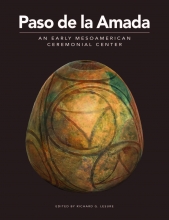Paso de la Amada, an archaeological site in the Soconusco region of the Pacific coast of Mexico, was among the earliest sedentary, ceramic-using villages of Mesoamerica. Excavations at the site have revealed significant earthen constructions from as early as 1700 BC and the associated data offers insight on the subsistence, social inequality, and organizational history of the site.

Ceramics Analyzed to Levels A, B, and C

Excavation Nomenclature

Disk-Shaped Beads
